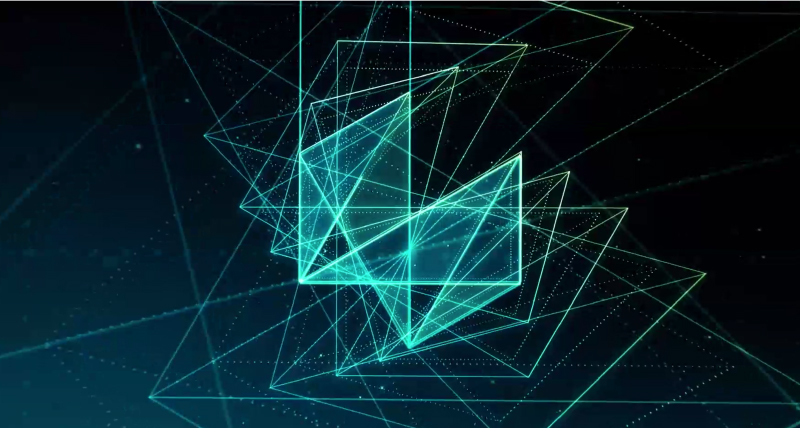You’ve probably heard that in life, who you know can matter more than what you know. But how do you get to know new people? The answer of course is networking. Networking is a vital component of your professional life from helping you discover job opportunities to finding a mentor. In the latest edition of Location Intelligence, we talk about professional networking opportunities in the geospatial industry, including professional associations, conferences, events, LinkedIn, and more.
JD: Hi, and thank you for tuning into Location Intelligence on HxGN Radio. I’m your host, Justin Dinger. You’ve probably heard that in life, who you know can matter more than what you know. But how do you get to know new people? The answer of course is networking. Networking is a vital component of your professional life from helping you discover job opportunities to finding a mentor. In our ongoing podcast series about geospatial careers and professional development, I’m talking to Mike Lane, Global Education Manager of Hexagon’s Geospatial division, and Elliott Ferguson, Vice President of Geospatial at Hexagon US Federal, about networking opportunities, including professional associations, conferences and events, alumni associations, LinkedIn, other online opportunities, and even networking within your own company. Mike and Elliott, welcome back to this show and thank you for joining us again.
ML: Thanks for having us.
EF: Yeah, appreciate the invite.
JD: So, in this episode, we’re talking about building and cultivating a professional network, which can be intimidating if you don’t know where to start. So, Elliot, could you tell us how you started building your professional network when you entered this field?
EF: Sure. Yeah, right out of school, it can be quite challenging to leverage a network. I think you start meeting a lot of co-workers and figuring out how to sort of make your way within that particular company or space that you’re in. So for me, it was just starting by making friends, developing co-worker relationships that would last. And I can say for my very first job out of school, the vast majority of those people I became friends with, I’m still in contact with probably on a monthly basis. As valuable as that network can be obviously to move up in your career or look for advancement, it’s also very important to develop mentorship opportunities with folks who have been in the industry longer than you. So, finding projects or leaders within your organisation that may take an interest in you or you take an interest in them. I think is super important, and trying to get their time to help you take them under their wing and show you the ropes a little bit is a huge advantage and something I took advantage of and actually account for a lot of my success in the field, is I learnt a lot from those individuals and they’ve helped me to grow. The last piece that I would mention is, obviously coming right out of school, you may or may not realise it, but you already have a pretty large existing network from folks that are in your degree and field of study and those individuals that you interacted with as they go out into the world and find new jobs, positions, career opportunities. They can be great people to leverage as well and stay in touch with for opportunities down the road.
JD: Mike, how about you? Where did you get started in building your network?
ML: Yeah. Well, first of all, I couldn’t agree more with what Elliot said. One of the ways that I built my network. I mean, this was 20 years ago when I was coming out of school and trying to find my first job, is things were a bit different then than they are now. I actually bought a list of all the companies and contacts that I could reach out to in the geospatial field in my area. And I started writing cover letters and resumes and so forth. Eventually, I got contacts with ERDAS where I had started my career and where I still am. So, now those things are a little bit more freely available on the internet through different LinkedIn and other internet channels. But that’s essentially how I got started, was with internet searches and building lists. Once I got hired, one of the ways that I started to build my network was that the company, ERDAS, that I was working for offered a tuition reimbursement programme. So I gladly took advantage of the fact that if I was going to take courses at a university in the area that they would repay me for those courses. So I was also learning, they were getting benefit from my additional knowledge. So I went to school at UGA and built my network there, which is interesting because now that I work with universities, one of my professors at that time, I’m actually in direct contact with and works for one of the largest geospatial organisations and is a volunteer for one of those as well. So it just goes to show that it has this domino effect of building that network. Then as Elliot mentioned, finally, internal meetups, social events, once you are established and once you have a job at a company, I think it’s extremely important that you build relationships with your colleagues. So that is definitely what has accelerated my career, making sure that every social event, whether it was a trivia nights or a barbecue, I always went and I always made sure that I was building those friendships, because you never know where those people are going to end up and where potentially that could help you in your next stage of your career. So always taking advantage of that and making sure that you’re making the most of those interpersonal connections.
JD: I think that’s great. I think if we could just dive a little bit deeper, I think at a high level, we’re talking about getting out there and interacting with people in the same field as you and discovering those groups and associations. But are there any specific industry associations or groups that someone listening to this podcast could go today and go be a part of?
EF: Yeah. I mean, for me, the ones that jump right out, and I’m sure Mike can expound on this a bit as well given her level of interaction with them, but USGIF has been a huge component of my career in getting to know people in my field specifically. USGIF is focused on helping US federal government agencies expand their geospatial capabilities through industry partners, academia, aet cetera, and they have a great young professionals programme where you can get involved very, very early on, get invited to socials as Mike was mentioning and to other networking events at their particular conferences or other activities that they host throughout the year. They’re specifically focused on US federal government, so that makes it keenly applicable to my situation. But there are others out there. I’m less familiar with those and haven’t used that as part of my larger network outside of USGIF. But if you can latch on to things that make sense in your career path, again, mine being applicable to the federal government, it’s definitely something worth doing and can open a lot of doors.
JD: Mike, how about you? I know that Elliot is talking about USGIF, what are some of the industry associations or university associations and groups that students or folks coming right out of college can get involved with?
ML: Sure. So I agree with Elliot that the USGIF is a very, very… it’s a great organisation, very promising students come out of there, and they put together some great events. So, absolutely that is a good one. Others, AAG, so the American Association of Geographers. They are not only an organisation, but they hold a conference every April. It’s called the American Association of Geographers, but this conference is very international and they don’t turn away anyone who wants to present. So, if you have a project and you want to get it out there, you have a poster, you’ve done something at school, you will not be rejected at this conference. They will make space for you even if it’s 10 minutes or 20 minutes for a presentation. So it’s a great way to go and connect. It’s a very big conference, about 10,000 people, and it rotates throughout different cities throughout North America. Another one is AGU, the American Geophysical Association. So, they also have a very big conference, usually in December in D.C,, and this one is about 20,000 people. So if you’re doing anything with geophysics, weather, and so forth, some of the brightest minds all over the globe come to this conference and it’s a great one to be a part of. URISA is another one that you can become a part of. CalGIS for people that are in California or in that vicinity. I think one of the important things to remember though is that, with these organisations, whether they’re paid dues or not, that it’s not about having a list of all of these that you’re a part of, but becoming a part of one and really volunteering or becoming truly a part of that organisation. So it’s not necessarily a medal to be a part of 15 different organisations, but to be truly a member of one or two and take an active participant role in that organisation is way more important. So, find something that you’re very passionate about and put your time and effort into that organisation and volunteer.
JD: Thank you, Mike and Elliott. I think those are both just very, very valuable places for career entrants to go look, can start to kind of build their network and turnover all the different rocks as they go down the path. So let’s pivot and let’s tackle LinkedIn. I know many professionals have an account, but they may use it to varying degrees. I’ve personally had an account for almost 15 years and I use it daily. Elliot, what’s your take on LinkedIn as a networking tool and do you have any tips for maximising its potential as a way to connect with other professionals in the geospatial field?
EF: Yeah, absolutely. I think early on similar to most folks, I had got to LinkedIn because I thought it was the thing to do, and I ended up not using it really at all. It wasn’t until I started to realise how quickly you can fall out of touch with prior co-workers or folks that you’ve crossed paths with or really great conversations that you’ve had with at a conference or something like that that I really started to see its value. So, for me, it was more about the social connection element of it and staying in touch with those who I felt were critical to my path forward as well as opportunities with business, things of that nature. I use it every single day now. I use it for a multitude of reasons. In my current role, I do a lot of recruiting and looking for talent, and so I’m constantly searching for skill sets or people who can help to build our teams and maximise our output to our customers. I also use it, as I said, for connection to old friends and colleagues and network from the past and I utilise that probably once a week at least just touching base with folks. Then the other element that you can do, and I need to do a better job of myself, is actually putting yourself out there and promoting your own brand. Putting yourself out there as a thought and sharing your thoughts with those in your industry and those who follow you can be extraordinarily powerful and I would highly recommend that people utilise it that way if they’re working to grow their network and even expand their horizon within the industry. Otherwise, I would say LinkedIn can be as valuable as you make it just like any other social media tool. So use it at your own discretion and put yourself out there if you really want to see it grow.
JD: Mike, what’s your take on LinkedIn? Do you have any tips for listeners or any guidance that might help them maximise its networking potential?
ML: Yeah. So, LinkedIn, I would say it can be very, very useful. Keeping up to date, as Elliot said, with people who are moving into new positions is a valuable thing to understand their path. Prospecting, I use it actually even to do prospecting for new customers, understanding where their interests lie. I think it’s a great network. It’s also important to know that it is social media, so it is people describing themselves. It’s not always up to date because some people, as you mentioned, Justin, don’t use it all that often. So as you are using it, one of the things that I find the most beneficial about LinkedIn are the focused groups. So if you find something that you’re really, really interested in, like LiDAR data or education, there are several different groups that you can become a part of. Normally, you’re not allowed to do any marketing or publication of company pitches on these types of groups, it’s mainly just people sharing information. And those are really great because they’re very specific and they’re targeted at what your interests are in. So besides keeping up with people, the groups are one of the ways that I really like to use LinkedIn.
JD: Mike, I would agree. I think the power of LinkedIn groups and the ability to really connect authentically with other professionals in your field is a very, very powerful mechanism in LinkedIn or way for people to just connect. Both of have mentioned building and cultivating your network from the people you work with or the company you work with. From my experience, sometimes your work colleagues can be a great way to build that network. They know your strengths and what you’re good at, and definitely as they go on to other roles, it’s always nice to have those kind of people. I don’t want to say in your back pocket, but definitely within your network and in your corner. So, Mike or Elliott, do either of you have any guidance on how to do that successfully, how to successfully build and cultivate a professional network within your company? And are there any factors to consider or any pitfalls to avoid when doing that?
ML: So, I can go ahead and jump in. I would say this is probably the biggest thing that has influenced my career path and where I am today, was exactly this, building these relationships with co-workers. I would say don’t be shy about what you would like to do and what your passion is and what you want to do next. So I was always going to the functions and letting people know that, yes, I’m working in the engineering team right now, but I would much rather… or my next step, my next phase, I would like to work more with customers and so forth. So that got me my next connection to the next manager who heard what I wanted to do next. Right? And I think every different career path that I have taken within this company has always come from me voicing my opinion and letting people know what I wanted to do next and what I wanted to learn next, what would make me happy. So, I can’t stress enough how important it is to develop those relationships in company. I would say one of the things that I would shy away from, a pitfall to avoid, would be to try to rise to the top too fast. There’s a happy medium, a nice balance of voicing your opinion and letting people know what your career path and your preference to a career path versus trying to be too aggressive and rise up the corporate ladder. So that would be my advice, would just be simply to let people know within the company what your desires are, and if you’re performing well, hopefully that the company that you’re working for will notice that and provide you with a great career path as Hexagon has done with me.
EF: Yeah, and I would actually like to add a little bit to that. I totally agree with everything that Mike said. I think one of the most critical elements of a network for me, specifically with co-workers, isn’t just knowing people and knowing that you might be able to leverage them in the future. I think a lot of folks, when they hear, “Go build a network,” it means go meet as many people as you can so that you could utilise those people in the future. For me, it’s been far more tactical and far more important to build a valuable and lasting relationship with those individuals that you want to trust and be friends with for the entirety of your career. And those are the people that you can bank on for giving you a great recommendation, again, because people don’t want to put their name out there for you if you’re obviously not close and have not shown your value to them and vice versa. You don’t want anyone’s name to tarnish your good name, and like I said, and vice versa. So building those relationships is super important and then also showing folks in your network your work ethic, what your expertise is, speaking up and sharing your ideas with those individuals is extremely important. So just to add on to what Mike said, I think those relationships are critical.
JD: I think those are both great answers and really, really good advice. So, Elliot, if there was just one piece of advice that you could give a professional as they start building their network, what would it be?
EF: I think just don’t be shy, put yourself out there and talk to other people who have similar interests to you even if you feel like your ideas may not be super compelling. Even if it’s just building a network to commiserate with sometimes, it’s just as valuable. We’re all in the same boat together sort of thing. I think the network itself that you end up utilising, again, our friendships in my particular case. I’ve made friendships with all the colleagues and co-workers that I’ve had over the years, and even those mentors that I have, I’m still in touch with almost on a monthly basis if not more frequently. So become friends, value those relationships, nurture them, and don’t let them fall off the radar because it’s very easy to do with all the other busy things going on in your life.
JD: Let me just ask a follow-up. You mentioned the word mentor, what advice would you give for someone seeking to have a mentor in their career, because I know that can be just very, very critical to just building your skills and deepening and strengthening your experience within your field of practise? So, what advice would you have for someone who’s wanting to find a mentor?
EF: Yeah, I think Mike nailed it earlier. It’s just voicing to those individuals who are further along in their career what things you want to do, what your goals are and your aspirations, and how those things align to what you see them doing on a daily basis. Most of my mentorship opportunities have come from, again, building a relationship with those individuals and being very clear and upfront with what my goals are and not necessarily how I can utilise them to get there, but how I can learn from them and how I can learn more about what the industry can offer through their experiences. And again, you don’t want to ever make anyone feel like you’re just using them for the leg up, developing a real relationship with those people is what makes all the difference.
JD: Mike, what would be your one piece of advice for someone starting to build their network?
ML: Yeah, I think Elliot stole all of my good bullet points. He was spot on with exactly everything he said. A mentor is very key, I think, and what he mentioned of somebody maybe that isn’t within your own company, but somebody outside, an industry leader, somebody that you trust and value their relationship and value their opinion and meeting up with them and just brainstorming ideas and throwing ideas back and forth or challenges that you’ve had at work. I think this was one of the biggest things that when I first started management and I had a mentor who I was able to… outside of the company, didn’t know the drama or the things that were going on internally and he could give me a very third-party and agnostic opinion about what was happening. And it made me aware of different things that I hadn’t ever heard of before and it helped tremendously. Otherwise, building your network. Definitely, all of us have different levels of shyness and how we present ourselves. Don’t be shy. I have this in my notes as well to say, sometimes it’s harder for some than others. We all have different personalities and we all have different positive strengths, let yours come out and let people see that. And that I think is one of the biggest things, is that people remember you. One of the things that I remember about a statistic is, you can be giving a presentation and people won’t remember almost anything that you said, but they will remember how you made them feel. So the relationships are extremely important and building those for future, as Elliot said, not to get ahead, but actually for being a genuine person, that’s going to get you a lot further than just trying to climb the corporate ladder. So yeah, I agree with Elliot on all points and I wish everyone the best of luck.
JD: Thank you, Mike. I’ll ask both of you as I do in all of these episodes, are there any parting ideas or advice or things that you would like to share before we wrap up this episode?
ML: I’ll jump back in quickly and reflect on something that Elliot said about ideas and bringing ideas to the table. This is something that I think once you’re hired is extremely important and noticed for managers. Even if your idea, if you bring a new idea every single week and that it isn’t always feasible or it isn’t always realistic for the company to carry out, always bringing new ideas to the table is something that is refreshing, it’s noticed, and something that will get you far. So don’t be shy about sharing those and expressing what you think might be able to help. And it can be in anything, whether that’s suggesting a meetup or something more of a company collective activity, whether that’s an idea for revenue generation, whether it’s a webinar, whatever it is, speak up because your manager sometimes they get stuck as well and we look for refreshing new ideas from people that are around us. So I think it’s important to always speak up and new ideas are always welcome.
EF: Yeah. And one of the other topics that I wanted to bring up is a lot of our discussions throughout this series have been on folks coming directly out of school, but also just recognising that there are folks that come out of other career fields that may be interested in geospatial, and also coming out of the military specifically. And when it comes to the US federal government and those federal customers, those who are coming out of the military can be tremendously valuable and a lot of their background experience and actual mission usage and understanding is invaluable. So companies like Hexagon US Federal are looking for those folks all the time. So, as Mike said, don’t be shy to reach out, touch base with those who are focused in your industry and just say, “Hey, here I am and I’m looking for something new.” That can be a huge leg up and is actually more impressive than most would think. When I get those emails, I always try to respond because I see that folks are putting themselves out there and that’s always a scary thing to do.
JD: Mike and Elliot, thank you so much for your time and thank you for joining us again today. It’s always great to have you two on the show.
ML: Thanks
EF: Great to talk to you, Justin. Oh, sorry Mike.
ML: No, that’s all right. I was going to say we look forward to the next one.
JD: In the next episode of this series, Mike and Elliot will provide tips and tricks on how to successfully prepare for job interviews in the geospatial industry. Thanks for tuning in to Location Intelligence on HxGN Radio. For more great stories and podcasts, visit hxgnspotlight.com.
















